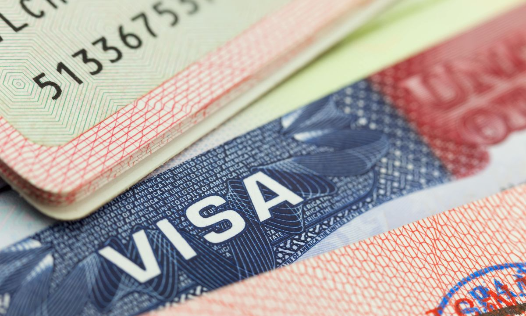Payment is being processed. Please do not refresh or close this page until your payment is complete.
 Book an Appointment
Book an Appointment

The US government has suspended a key immigration support office, raising concerns over visa delays. Here's how this change may affect H-1B, F-1 visa holders, and green card applicants.
Getting help with US visa problems might be harder now. There have been big changes at important government offices that oversee immigration. Staff at the main office for helping people with visa issues, the CIS Ombudsman, were suddenly put on 60-day administrative leave.
While DHS describes the move as a part of broader efforts to “streamline operations,” legal experts and advocacy groups are raising alarms over what appears to be an attempt to weaken independent oversight of U.S. immigration services.
Why This Matters: CIS Ombudsman’s Role in Immigration
The CIS Ombudsman plays a critical role in assisting individuals facing bureaucratic delays and complications with the U.S. Citizenship and Immigration Services (USCIS). The office provides support for visa applicants, permanent residents, and others, especially when regular USCIS channels fall short.
Each year, the office helps around 30,000 people, many of whom are Indian nationals on H-1B and F-1 visas or waiting for green card approvals. Its independence from USCIS allowed it to act as a neutral advocate, often expediting cases stalled by red tape.
Impact on Indian Diaspora and Visa Holders
The Indian diaspora, one of the largest immigrant communities in the U.S., may be hit particularly hard by this administrative change.
Affected groups include:
• H-1B workers dealing with delayed extensions or status changes
• F-1 students waiting for OPT or STEM extensions
• Green card applicants facing backlogs and RFEs (Requests for Evidence)
Without the Ombudsman’s intervention, immigrants may find it harder to resolve issues that previously required mediation. Concerns are mounting that immigrants will now be left to navigate complex immigration systems with fewer tools.
What Experts and Lawmakers Are Saying
Immigration advocates, including the American Immigration Lawyers Association (AILA), have criticized the decision, warning that it removes an essential layer of oversight and could lead to unchecked administrative control.
Democratic lawmakers have also voiced opposition. They highlighted that one of the affected bodies—the Office for Civil Rights and Civil Liberties—is mandated by law, suggesting this administrative action could face legal scrutiny.
What Should Immigrants and Visa Holders Do Now?
With the CIS Ombudsman temporarily out of action, immigrants are encouraged to take the following steps to protect their cases:
• Contact your congressional representative: They can often assist with USCIS-related issues.
• Consult with an immigration attorney: Legal experts can offer strategic advice tailored to your case.
• Keep detailed records: Save copies of all documents and communications with USCIS.
• Opt for premium processing: If available, this can expedite certain types of visa applications and petitions.
While these steps won’t replace the Ombudsman’s services, they offer some support in navigating the system.
Recent Changes in US Visa and Immigration
Aside from the DHS move, several key updates have emerged in U.S. immigration policy:
1. H-1B Lottery Updates: FY2026 H-1B lottery results are out; check your USCIS account for selection notifications. USCIS remains focused on preventing fraud in the registration process.
2. Visa Interview Wait Times: US visa interview wait times vary widely. Check consulate websites for current estimates, as backlogs persist despite some progress, especially for F-1 and worker visas.
3. Focus on Streamlining & Efficiency: USCIS aims to improve processing times with more online filing and digital tools. However, be aware that significant backlogs still affect many application types.
4. Potential Policy Adjustments: Minor policy adjustments, fee changes, or rule clarifications can happen at any time. Always stay informed by checking official USCIS announcements and reliable immigration news sources.
Final Thoughts
The DHS’s administrative leave order may appear temporary, but its potential long-term effects on immigration fairness are serious. With oversight offices now on hold, immigrants must rely more heavily on legal counsel and political advocacy to resolve case issues.
While this development poses new challenges, proactive steps and staying informed can help navigate the evolving U.S. immigration landscape.
Source: https://travelobiz.com/us-visa-delays-immigration-ombudsman-office-suspended/